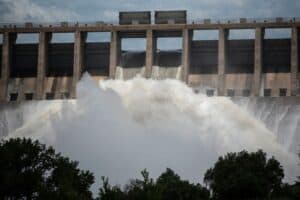Adele Botes highlights challenges in Gauteng’s water supply, citing aging infrastructure and increasing demand.

Amid the anticipation around the National Assembly’s election of South Africa’s new president and the announcement of a new Cabinet, uncertainty looms over the fate of the water department.
This uncertainty comes as the country grapples with a pressing water crisis.
Water crisis in Gauteng
Adele Botes, senior audit manager at accountancy and business advisory firm BDO, said the water crisis gripping Gauteng is a stark reminder of the challenges facing South Africa in ensuring a sustainable water supply amid growing demand and infrastructural decay.
Botes said there was a need for urgent and immediate attention on the ongoing crisis in the province, where some areas had experienced prolonged periods without water in recent months.
“Several challenges have contributed to the current water infrastructure crisis. A major issue is the ageing infrastructure that has not been adequately maintained to meet the growing population’s water needs.
ALSO READ: It’s make or break for Tshwane’s water crisis
“The continuous growth in demand has led to the existing systems struggling to cope, leading to water shortages and pressure on available resources,” said Botes.
“Poor infrastructure maintenance, inadequate wastewater treatment facilities, agriculture and industrial activities have also led to water pollution, further exacerbating the crisis.”
Concern about water and sanitation crisis
Ferrial Adam, executive director of WaterCAN, also expressed concern about the water and sanitation crisis.
She referred to government reports which stated that half of SA’s water systems were not drinkable.
“More than 70% of our wastewater treatment plants are not working well. They are in a critical state. Then, we lose almost 47% of our water to non-revenue water and a lot of that is through leakage.
ALSO READ: Rooiwal ‘on track’ to deliver to Hammanskraal by deadline
“Leakage is concerning and we need to act with urgency because we’re at a watershed. We are a water-scarce country. We have climate change that’s impacting in terms of floods and droughts,” she said.
Adam said SA’s water crisis was a reflection of the country’s political position and how the metros were handled.
“As the metros were declining, for 10 years, the national department was also in decline. Municipalities are failing because they have mismanaged funds and there’s corruption.”
She pointed to Johannesburg and said the city had changed five mayors in two years.
“How stable can that government be to actually make sure service delivery is happening on the ground?” asked Adam.
ALSO READ: Tshwane and department partnership key to SA’s water future
Nothing changed in water crisis from last year
Speaking to eNCA, Benoit le Roy from the South African Water Chamber said nothing had changed regarding the water crisis from last year.
He said the demand for water was not decreasing in Gauteng as it normally would in summer.
“The trend goes to show that the system is leaking. We have to start addressing the asset restitution programme. But we can’t put water into a leaking bucket, the more we put in, the more it leaks,” he said.
“The issue is on the distribution and municipal side. Unlike electricity, water systems are designed to work 24/7. The situation is not encouraging and nobody is doing anything about it,” he added.
Economic implications on businesses, agriculture and public health
Botes said the crisis had significant economic implications on businesses, agriculture and public health in the province.
ALSO READ: eThekwini moves to rapidly repair sinkhole in Durban CBD
“Disruptions in water supply could directly impact production processes, reducing operational efficiencies and production capacity and lead to increased operating costs,” she added.
She said a long-term recommendation would be for additional funding to be invested in water infrastructure, expanding available capacity to meet the growth in demand.
“Sustainable water management practices must be implemented, like the reuse of treated wastewater for industrial usage and harvesting of rainwater. Wastewater treatment facilities must be upgraded to ensure high-quality water is made available to minimise the impact of pollution,” said Botes.
Support Local Journalism
Add The Citizen as a Preferred Source on Google and follow us on Google News to see more of our trusted reporting in Google News and Top Stories.








